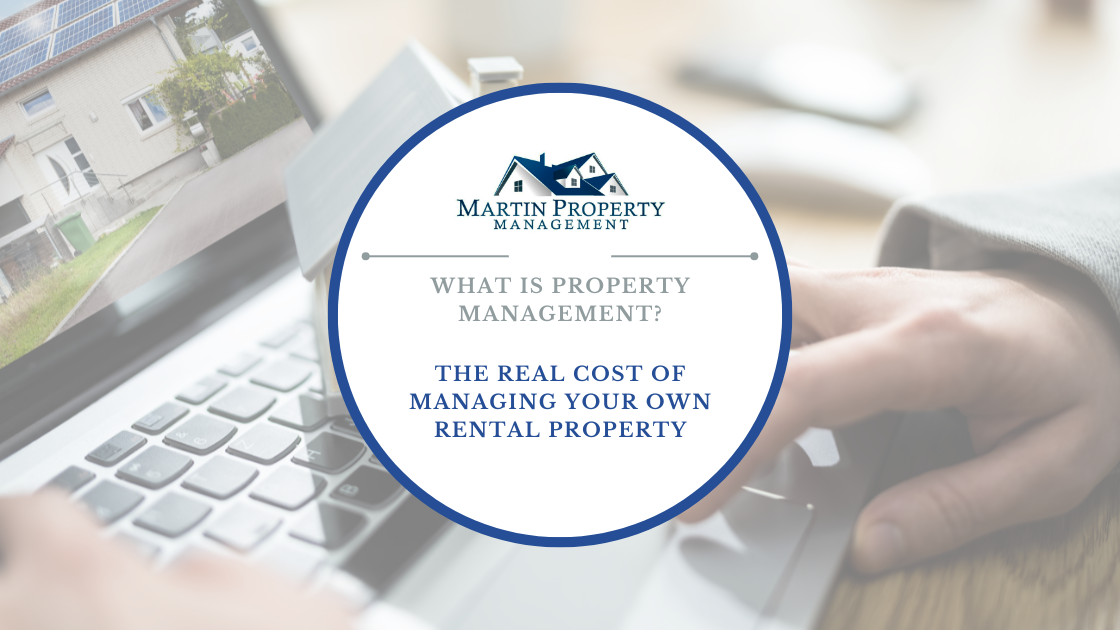Managing your own rental might seem like a good way to save money. But the true cost of DIY property management often adds up in ways most landlords don’t see—until it’s too late.
Whether it’s vacancies, legal missteps, or delayed repairs, self-managing can quickly eat away at your rental income. And in today’s regulatory environment, the risks are higher than ever.
Here’s what you really need to consider—and how professional property management services can make the difference.
1. Vacancy = Lost Income
Every day your rental sits empty is a direct financial hit. Filling a vacancy efficiently requires:
Competitive, market-aligned pricing
Quality advertising and digital marketing
Immediate response to inquiries
Professional showings and follow-ups
Fast, compliant application processing
Even a couple of weeks without a tenant can cost hundreds (if not thousands). Experienced property managers minimize vacancy periods with proven systems and stronger tenant pipelines.
2. Poor Tenant Screening Can Be Costly
A bad tenant can cost far more than a management fee. Common issues include:
Late or unpaid rent
Lease violations
Noise or neighbor complaints
Property damage
Costly evictions
Self-managed landlords often rely on limited screening tools—or none at all. In contrast, professional managers use multi-point background checks, income verification, rental history, and compliance-aligned criteria to reduce the risk of high-turnover or nonpaying tenants.
3. Maintenance Delays Lead to Bigger Problems
Putting off small repairs can snowball into larger, more expensive issues—and in many states, delayed repairs can trigger habitability violations.
For example:
A leaking faucet becomes mold
A loose railing becomes a liability
An ignored heating issue becomes a legal claim
Professional managers respond fast, document everything, and use vetted vendors to protect both your property and your legal exposure. They also ensure emergency repairs are handled 24/7, a requirement in many jurisdictions.
4. Legal and Regulatory Risks Are Real
This is one of the most overlooked and dangerous aspects of self-management.
Massachusetts, like many states, has complex landlord-tenant laws that cover everything from:
Security deposit handling and interest tracking
Proper notice before entry or termination
Rent increase protocols
Fair housing compliance
Maintenance response timelines
Local lead paint and safety ordinances
One misstep—accidental or not—can result in fines, lawsuits, or forced refunds of rent and deposits.
And these laws evolve. For example, rent control proposals, eviction moratoriums, and inspection mandates have all shifted rapidly in recent years.
If you're new to property management or want a deeper look at what it really involves, our guide on What Property Management Is—and Why It Matters is a great place to start.
Professional property managers stay current on local and state regulations, so you don’t have to.
5. Your Time Isn’t Free
Managing a rental property isn’t passive—it’s time-intensive. Between answering tenant questions, chasing rent, and organizing vendors, many self-managing landlords end up working the equivalent of 10–15 hours a month per unit.
That’s time you could spend:
Scaling your portfolio
Investing in other ventures
Spending time with family
Doing… anything else
If your time is worth $50–$100 per hour (or more), the math is clear: property management is often the more cost-efficient choice.
6. Lack of Systems = Missed Opportunities
Without the right infrastructure, you risk:
Inconsistent rent collection
Maintenance delays
Poor documentation (which matters in legal disputes)
Lost tax deductions from bad bookkeeping
Professional management companies bring digital tools, established workflows, and automation to every part of the rental cycle. That’s how you scale safely and protect your asset long-term.
So… Is Managing It Yourself Really Saving You Money?
If you add up:
Extended vacancies
Tenant turnover
Legal exposure
Delayed repairs
Time spent managing it all
…it becomes clear that self-management is often more expensive and risky than many landlords realize.
What Martin Property Management Does Differently
At MPM, we believe smart investors want more than just maintenance coordination. They want a partner who protects their income and their legal standing.
We handle tenant relations, local compliance, inspections, and maintenance with systems built to reduce risk and maximize returns. And because we’re local, we understand the regulatory nuances that impact Massachusetts property owners—especially around leases, renewals, inspections, and ongoing legal changes.
Want to see how your rental could perform with professional management—without the headaches?
Want to know more about us?:
👉 https://www.martinhomemanagement.com/contact

